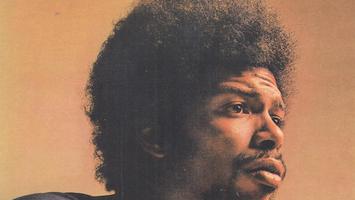Related Stories
Jacqueline Luqman
To understand the violence of contemporary immigration enforcement, one must trace its lineage directly to the antebellum slave patro
Dr. Gerald Horne
, Anthony Ballas
Jake Paul’s ascent in boxing is a cultural symptom of an empire in decline.
Jon Jeter
The assassination of a far-right demagogue raises the question: when does 'free speech' become a tool for inciting violence?
Editors, The Black Agenda Review
“...white paranoia is here to stay/The white boy's scheming night and day/What you think about the King Alfred Plan?”
Margaret Kimberley, BAR Executive Editor and Senior Columnist
Twenty years ago, the world witnessed more than the suffering of hurricane Katrina's victims.
Glen Ford, BAR Executive Editor
"Racism showed its ass in the days after August 29, 2005."
Imani Nile
A majority Black city in Westchester County, a northern suburb of New York City, suffers from years of Black political misleadership and is now
Jon Jeter
Minnesota’s progressive myth shatters as its racial gaps in income, education, and housing eclipse even Deep South states, and right wing white
Ann Garrison, BAR Contributing Editor
In “A Southern Panther,” movement elder Malik Rahim talks about his lifetime of battling ra
Terri Frick
Black support for Palestine underscores the fight against empire, revealing how Israel’s violence in Gaza serves U.S.
More Stories
- Margaret Kimberley, BAR Executive Editor and Senior ColumnistThe task of the left, of all anti-imperialists, is to oppose U.S. aggression around the world. A military attack against Iran is imminent and cannot be opposed on theoretical grounds. The people of…
- Editors, The Black Agenda Review"A civilization that uses its principles for trickery and deceit is a dying civilization.”
- Ann Garrison, BAR Contributing EditorThe US is funding a genocide. Of course we all know that, but how many of us know about Sudan?
- Raymond Nat Turner, BAR poet-in-residence"Kid growing up under growing fascism" is the latest from BAR's Poet-in-Residence.
- Anthony Karefa Rogers-WrightIsrael has been singled out for immunity rather than accountability, exposing the "rules-based order" as a farce.



















